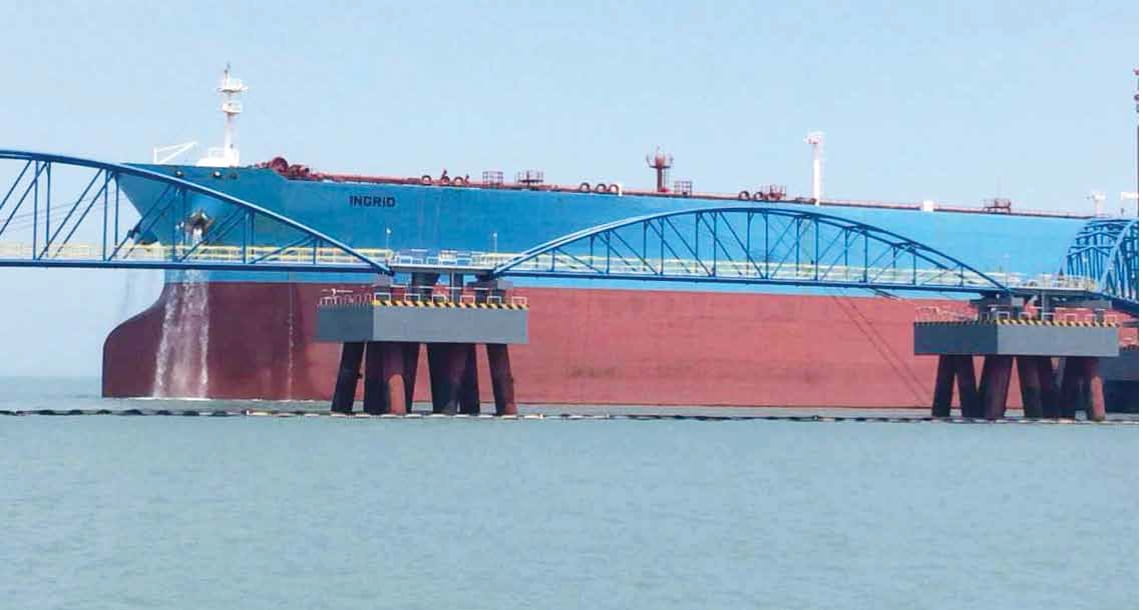The Sinochem Quanzhou Refinery in South China’s Fujian province received its first shipment of Saudi Aramco crude oil on Aug. 19.
The crude shipment of a basket mix of Arabian Crudes is the first ever oil the refinery purchased since it officially went into operation in July on the back of a successful trial run early this year.
“The delivery will help us enhance our role as a responsible and reliable energy supplier worldwide as we have been stably powering the world with our energy products,” said Abdallah Al-Subaiyyal, acting president of Aramco Asia. “We are committed to fulfilling our obligations and intend to do so for the future.”
The Very Large Crude Oil Carrier (VLCC) Mt Ingrid carrying the crude oil arrived at Quanzhou Huanggan Port in the South China Fujian province on Aug. 19 after a 22-day voyage. The tanker started unloading the oil upon arrival.
State-backed Sinochem first began doing business with Saudi Aramco back in the 1990s. The newly started refinery, a fully owned Sinochem subsidiary with a capacity of 240,000 barrels per day (bpd), can produce gasoline and diesel that meets Euro V standards.
Al-Subaiyyal led a number of Aramco Asia directors on a visit to the refinery on Aug. 15 and had a meeting with Sinochem vice president Du Guosheng, where he has conveyed his congratulations of the startup of the new refinery and discussed items related to the Saudi Aramco’s’ new crude shipment and future shipments to Sinochem.
“Quanzhou refinery is the latest addition to our end users this year, bringing the total number to 19 in the Chinese mainland,” said Rakkan Trabulsi, director of the Marketing and Joint Ventures Department at Aramco Asia.
“The Beijing marketing team plays an important role in constantly understanding the needs of the market in general and our customers specifically. This gives Saudi Aramco the edge it needs in capturing any opportunity that will help expanding its reach, protecting market share, and minimizing fluctuations in crude exports by expanding the customer base,” Rakkan added.


.jpg?cx=0.5&cy=0.5&mw=10)

